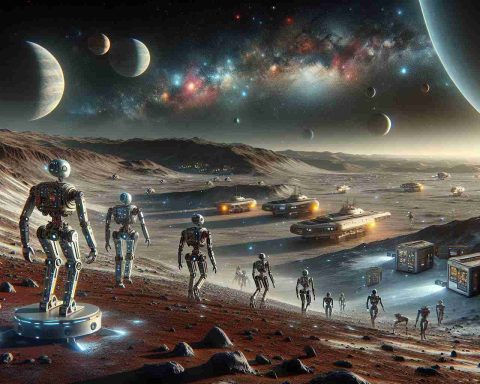In an unexpected twist of nostalgia, VHS tapes are resurfacing in popular culture, prompting renewed interest among collectors and fans. The latest announcement revolves around the release of a limited edition VHS tape of the film Alien: Romulus, which will hit shelves on December 3rd. This marks a significant moment as the last film to be released on VHS was A History of Violence back in 2006.
The film’s director, Fede Alvarez, revealed this exciting news at a special screening event connected to Beyond Fest. This release commemorates the 45th anniversary of the groundbreaking movie Alien, regarded by many as a cultural touchstone. The limited edition tape is set to feature the film in a classic 4:3 aspect ratio, packaged in a nostalgic casing that is a nod to the aesthetic of the past, designed by the talented artist Matt Ferguson.
Since its premiere in August, Alien: Romulus has made quite an impact at the box office, earning around $350 million globally. Critics have responded positively, lauding it as a visually stunning and chilling addition to the franchise. Although the tape will be released alongside modern formats such as 4K UHD, DVD, and Blu-Ray, the revival of VHS raises questions about its relevance in today’s digital age. Details related to pricing and the limited nature of the tape are still under wraps, leaving fans eager for more information.
VHS Tapes Make a Surprising Comeback with Alien: Romulus
In a surprising twist within the film and collector communities, VHS tapes are witnessing a renaissance thanks to the release of a limited edition tape for Alien: Romulus. This marks a significant cultural moment, as this release is not just a nostalgic throwback, but a reflection of broader trends in media consumption and collector interest.
What Drives the VHS Resurgence?
The revival of VHS tapes can be attributed to several interconnected factors. Firstly, the desire for nostalgia plays a major role; many collectors and fans enjoy revisiting the media formats of their childhood. In addition, films like Alien: Romulus that celebrate anniversaries or provide unique cultural commentary often attract interest from both longtime fans and new audiences. The allure of owning a distinctive product, such as the limited edition VHS of Alien: Romulus, is a compelling draw for collectors.
Key Challenges and Controversies
Despite the enthusiasm, there are challenges associated with this comeback. One of the primary issues is the practicality of VHS technology; VHS players are increasingly rare, and preserving films in this format is often viewed as an impractical choice compared to digital formats, which offer superior quality and longevity. There is also a concern of environmental impact, as producing new VHS tapes contributes to plastic waste, leading to debates about sustainability in media.
Additionally, some critics argue that the resurgence of VHS could lead to a dilution of cultural discourse regarding film preservation. This brings us to a crucial question: is the nostalgia for VHS authentic, or merely a marketing gimmick?
Advantages and Disadvantages
However, the VHS format comes with its share of advantages. The physicality of VHS tapes fosters a unique form of engagement with content that digital formats often lack. Collectors appreciate the tangible nature of VHS tapes, the artwork, and the possibility for exclusivity with limited releases. The retro aesthetic is also appealing, as it allows an appreciation for the artistic design from past decades.
On the downside, VHS tapes are susceptible to deterioration over time, leading to degradation of both the audio and visual quality. Moreover, the limited tapes do not cater to modern audiences accustomed to the convenience of digital access, making it challenging for this format to maintain relevance amid widespread technological advancement.
Conclusion
The release of Alien: Romulus on VHS illustrates both a nostalgia-driven revival and a complex set of discussions surrounding media formats. While it caters to collectors seeking the tangible and vintage feel of VHS, it simultaneously raises critical questions about sustainability and cultural preservation in an era dominated by digital media.
For more on this interesting cultural trend and media discussions, visit Rolling Stone or BBC Culture.






